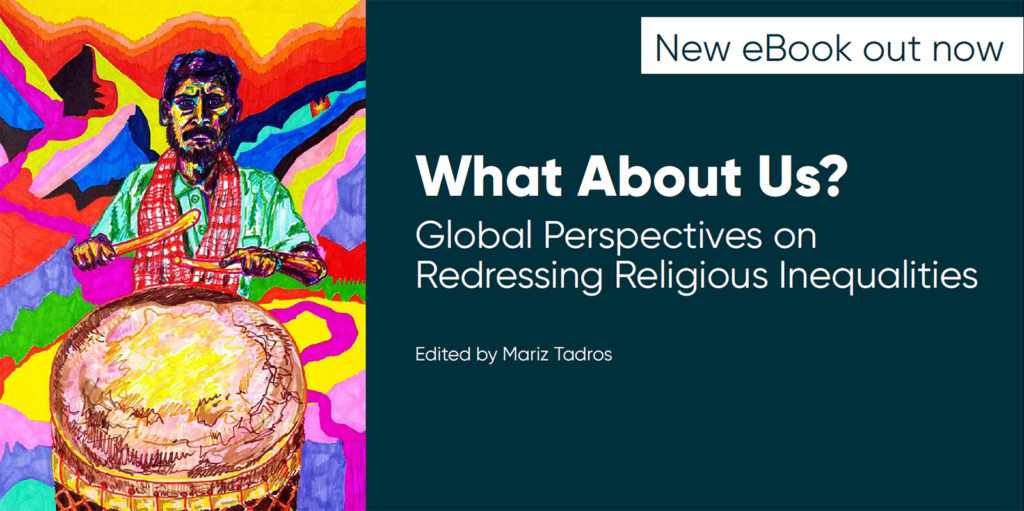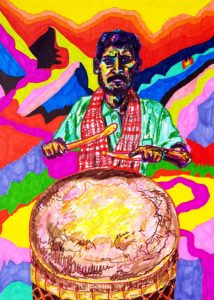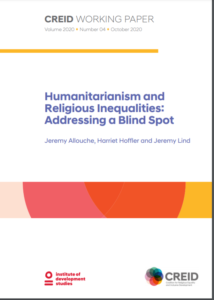This eBook, edited by Mariz Tadros, is about the individual and collective struggles of the religiously marginalised to be recognised and their inequalities, religious or otherwise, redressed. It is also about the efforts of civil society, governments, multilateral actors, and scholars to promote freedom of religion or belief (FoRB) whatever shape they take.

How can we make religious equality a reality for those on the margins of society and politics?
The actors and contexts that feature in this book are as diverse as indigenous movements in India, Uganda, or South Africa, health workers in Israel, local education authorities in Nigeria and multilateral actors such as the Islamic Development Bank in Sudan and the World Bank in Pakistan. Some of the case studies engage with development discourses and narratives or are undertaken by development actors, while other cases operate completely outside the international development paradigm. These case studies present some important insights, which while highly relevant for their contexts also draw out important insights for academics, practitioners, activists, and others who have an interest in redressing religious inequalities for socioeconomically marginalised populations.
Table of Contents
PART 1: Introduction
Redressing Religious Inequalities and Challenging Religious Otherization: Global Perspectives and Encounters
Mariz Tadros
PART 2: Religious Inequalities in Education, Health and Economic Wellbeing
Interfaith Dialogue Training and Religious Literacy: Minority Groups in the Israeli Health-Care System
Miriam Feldmann Kaye
Freedom of Religion or Belief Integration for Sustainable Development in the Oyo State Local Government Scholarship Scheme at the First Technical University, Ibadan, Nigeria
Olumide Adebimpe Aderounmu
The Other Invisible Hand: How Freedom of Religion or Belief Fosters Pro-Social and Pro-Developmental Outcomes for the Poor
Rebecca Supriya Shah and Timothy Samuel Shah
PART 3: Tensions Between National Models of Development, Religious Equality, and Respect for FoRB
‘We Put God and Drums in the Front’: Spirituality as Strategy in an Adivasi Self-Empowerment Movement
Philip Mader
Sustainable Faith and Livelihoods: Promoting Freedom of Religion or Belief in Development
Rifqah Tifloen and Matome Makgoba
The Integration of Traditional Religious Beliefs in the Conservation of the Rwenzori Mountains National Park, Uganda: Processes, and Lessons Learned
Moses Muhumuza, Tom Vanwing and Mark Kaahwa
PART 4: External Actors’ Promotion of FoRB: Ideology and Political Will
Inclusion of Religious Minorities: A Case Study of Pakistan Poverty Alleviation Fund Project (2009–16)
Asif Aqeel and Mary Gill
Promoting FoRB in a Poverty Reduction Programme in Sudan
Manal Ahmed Elehemier
Falling Between the Cracks? How Freedom of Religion or Belief is Considered in Development and Peacebuilding Approaches, Literature and Practice
Katharine Thane
PART 5: Conclusion
Conclusion
Mariz Tadros


